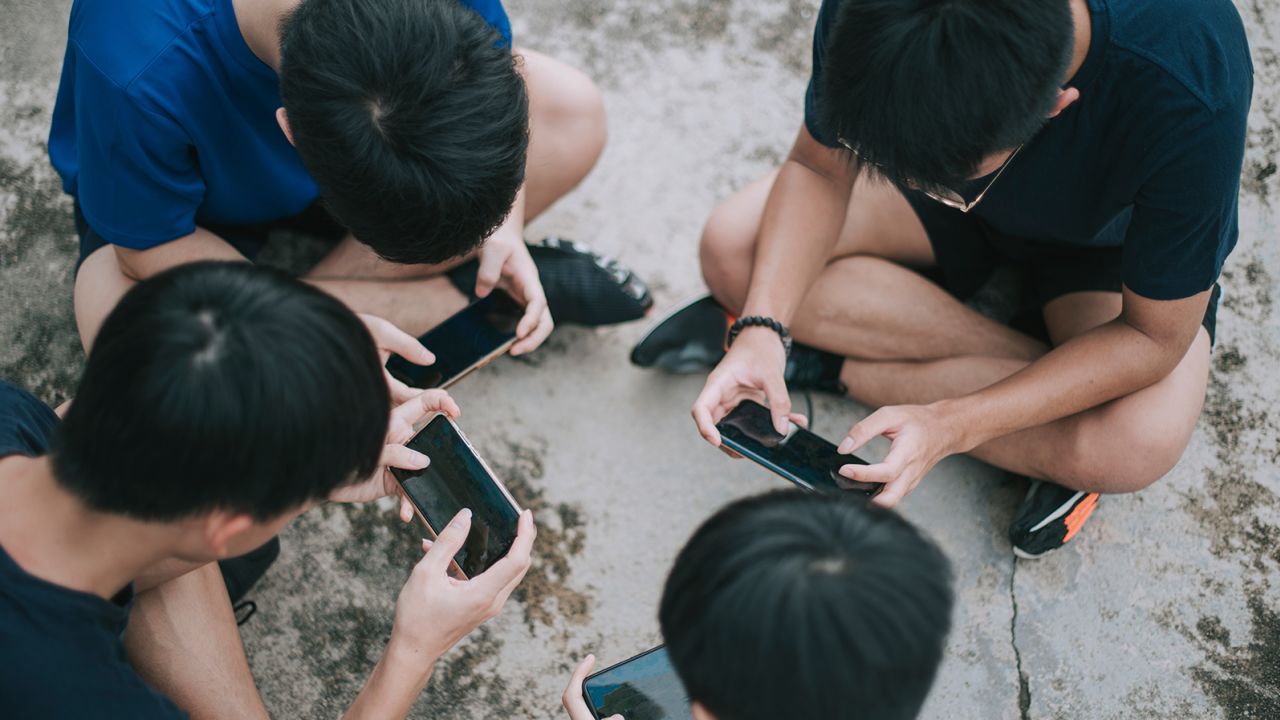China is proposing new measures to curb the amount of time that kids and teens can spend on their phones, as the country takes aim at internet addiction and tries to cultivate “good morality” and “socialist values” among minors.
A proposal released by the Cyberspace Administration of China, the country’s top internet regulator, on Wednesday would require all mobile devices, apps and app stores to have a built in “minor mode” that would restrict daily screen time to a maximum of two hours a day, depending on the age group.
The restrictions, if approved, would mark an expansion of existing measures rolled out in recent years as Beijing aims to limit screen time among kids and reduce their exposure to “undesirable information.”
Under the draft rules, which are open for public discussion until September 2, children and teens using devices on minor mode would automatically see online applications close when respective time limits are up. They would also be offered “age-based content.”
No one under 18 would be able to access their screens between 10 p.m. and 6 a.m. while using the mode.
Children under eight would be able to use their phones for only 40 minutes a day, while those between eight and 16 would get an hour of screen time. Teenagers over 16 and under 18 would be allowed two hours.
All age groups would receive a reminder to rest after using their device for more than 30 minutes.
Mobile internet service providers should also actively create content that “disseminates core socialist values” and “forges a sense of community of the Chinese nation,” the draft says.
Parents would be able to override time restrictions, and certain educational and emergency services would not be subject to the time limits.
“Internet addition” has emerged as a major social concern in recent years, giving rise to an often scientifically dubious and at times dangerous industry of boot-camp style treatment centers.
Protecting their eyes
Parents interviewed by CNN voiced tentative support for the proposal.
“I think it’s good. On the one hand, it can protect their vision as many young kids cannot stop themselves while watching something they like,” said a mother of two in eastern China’s Zhejiang province, who did not wish to provide her name.
“On the other hand, it’s easier for us parents to control our kids screen time,” she said. “Most importantly the content under the minor mode is more positive and healthy.”
Myopia has become a national health concern in China, with some experts linking the prevalence of nearsightedness among young people to lack of exposure to sunlight or excess screen time.
China has one of the world’s largest internet user bases, with roughly 1.07 billion people in the country of 1.4 billion having access to the web, according to the China Internet Network Information Center. About one in five users were 19 years or under, as of December.
The effectiveness of the new proposed measures may depend on buy-in from parents, according to a father of two in southeastern China’s Zhuhai city, who said children sometimes use their parents’ accounts to play online.
The regulation could be useful to “help parents to supervise the children” and limit screen time.
“Even us adults need it!” he joked.
Impact on tech firms
The new measures could present challenges for tech companies, which are typically held responsible for enforcing regulations.
The proposal comes as a severe, years-long regulatory crackdown on China’s tech giants appears to be coming to an end.
The Hong Kong-listed shares in some of the country’s top internet firms closed sharply lower on Wednesday, after the new rules were publicized.
Tencent (TCEHY), which operates popular messaging platform Wechat, finished about 3% lower. Video-streaming app Bilibili (BILI) lost 7%, while rival Kuaishou closed down 3.5%. Weibo, a Twitter-like platform, ended 4.8% lower.
On Thursday, the firms were trading flat to higher, with the exception of Weibo, which was trading about 1% lower.
CNN has approached mobile phone makers Xiaomi, Apple and Huawei for comment.
Two years ago, Chinese regulators barred online gamers under the age of 18 from playing on weekdays and limited their play to just three hours on weekends, tightening earlier limits.
Around that time, several tech companies introduced measures allowing for more parental controls, in lockstep with Beijing’s push for more oversight.
Douyin, the Chinese version of TikTok, introduced a “teenage mode” in 2021 which limited the amount of time children under the age of 14 could spend on the short-form video app to 40 minutes a day.
Kuaishou, another popular video app, has a similar option.
Past efforts have relied on internet users to register with their real names. Last year, regulators mandated that all online sites verify users’ real identities before allowing them to submit comments or like posts.
CNN’s Wayne Chang, Xiaofei Xu, Berry Wang and Mengchen Zhang contributed to this report.







